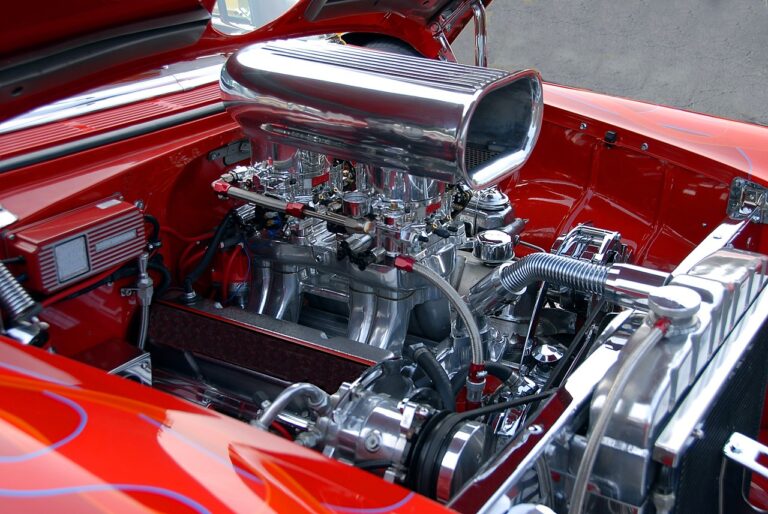Trends in Commercial Vehicle Automation: Sky247 log in, Gold365, Gold win 365
sky247 log in, gold365, gold win 365: As technology continues to advance at a rapid pace, the commercial vehicle industry is not immune to its impact. Automation is a trend that is set to revolutionize the way commercial vehicles operate, offering benefits such as improved efficiency, reduced costs, and increased safety.
Automation in commercial vehicles encompasses a wide range of technologies, from driver-assist features to fully autonomous vehicles. In this article, we will explore the latest trends in commercial vehicle automation and the potential implications for the industry.
1. Driver-Assist Features
One of the most common forms of commercial vehicle automation is driver-assist features. These technologies help drivers navigate the roads more safely and efficiently by providing assistance with tasks such as lane-keeping, adaptive cruise control, and automatic emergency braking.
Driver-assist features have been proven to reduce accidents and save lives, making them an increasingly popular choice for fleet operators looking to improve safety and lower insurance costs.
2. Telematics
Telematics technology is another key trend in commercial vehicle automation. Telematics systems use GPS and wireless communication to track vehicles in real-time, providing valuable data on fuel consumption, maintenance needs, and driver behavior.
By analyzing this data, fleet operators can optimize their operations, reduce fuel costs, and improve overall efficiency. Telematics also play a crucial role in preventive maintenance, helping to identify potential issues before they escalate into costly repairs.
3. Connected Vehicles
Connected vehicles are another important trend in commercial vehicle automation. These vehicles are equipped with sensors and communication technology that allow them to interact with other vehicles, infrastructure, and the cloud.
Connected vehicles can communicate with each other to improve traffic flow, reduce congestion, and enhance safety. Fleet operators can also use connected vehicle data to optimize routes, monitor driver behavior, and provide real-time updates to customers.
4. Electric Vehicles
The shift towards electric vehicles is another significant trend in commercial vehicle automation. Electric vehicles offer numerous benefits, including reduced emissions, lower operating costs, and quieter operation.
As battery technology continues to improve, electric vehicles are becoming an increasingly viable option for fleet operators looking to reduce their environmental impact and comply with strict emissions regulations.
5. Autonomous Vehicles
Perhaps the most groundbreaking trend in commercial vehicle automation is the development of autonomous vehicles. These vehicles are capable of navigating the roads without human intervention, using a combination of sensors, cameras, and artificial intelligence.
Autonomous vehicles have the potential to revolutionize the commercial vehicle industry, offering benefits such as increased safety, reduced labor costs, and improved efficiency. However, widespread adoption of autonomous vehicles is still several years away, as regulators work to address safety concerns and legal challenges.
6. Remote Diagnostics
Remote diagnostics technology is also playing a key role in commercial vehicle automation. These systems allow fleet operators to monitor the health of their vehicles in real-time, diagnosing issues before they lead to breakdowns.
By identifying maintenance needs early on, fleet operators can schedule repairs proactively, minimizing downtime and reducing repair costs. Remote diagnostics technology also enables predictive maintenance, helping fleet operators avoid costly repairs and keep their vehicles on the road.
FAQs
Q: What are the potential benefits of commercial vehicle automation?
A: Commercial vehicle automation offers numerous benefits, including improved safety, reduced costs, increased efficiency, and lower emissions.
Q: Are there any drawbacks to commercial vehicle automation?
A: While commercial vehicle automation offers many benefits, there are also potential drawbacks to consider, such as regulatory challenges, cybersecurity risks, and job displacement.
Q: When can we expect to see widespread adoption of autonomous vehicles in the commercial vehicle industry?
A: Widespread adoption of autonomous vehicles in the commercial vehicle industry is still several years away, as regulators work to address safety concerns and legal challenges.
In conclusion, commercial vehicle automation is a trend that is set to transform the industry, offering benefits such as improved safety, reduced costs, and increased efficiency. Fleet operators who embrace these technologies early on stand to gain a competitive advantage in the rapidly evolving marketplace.







